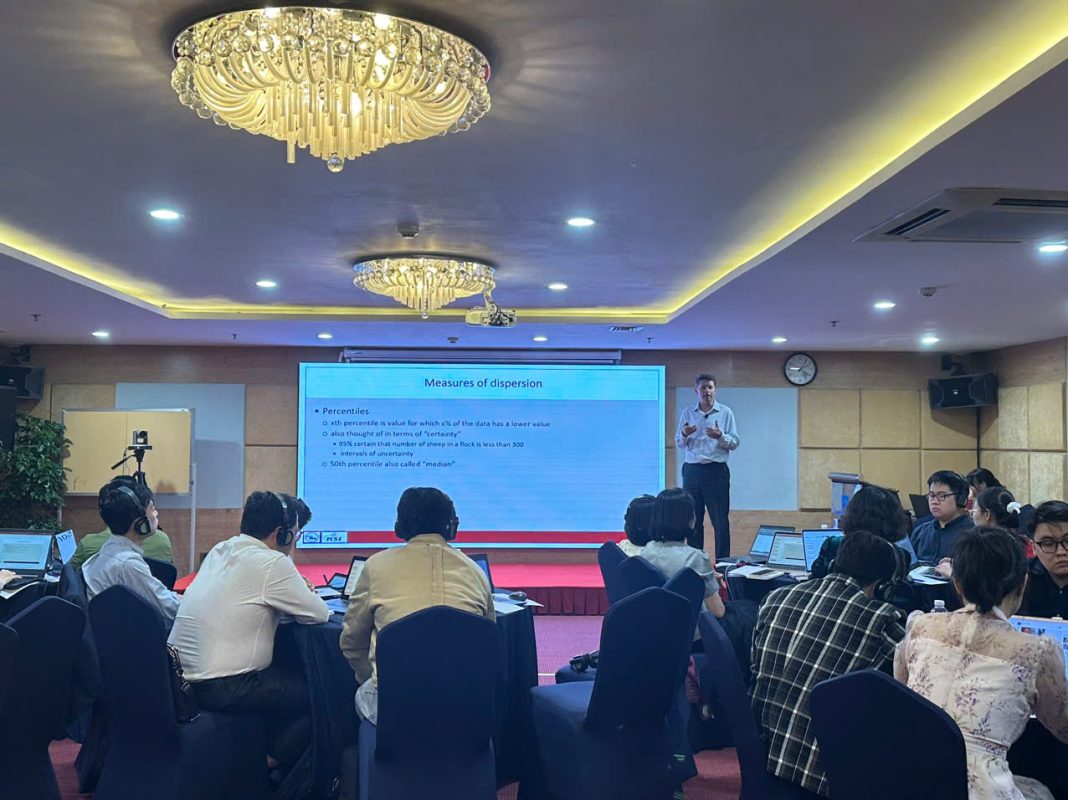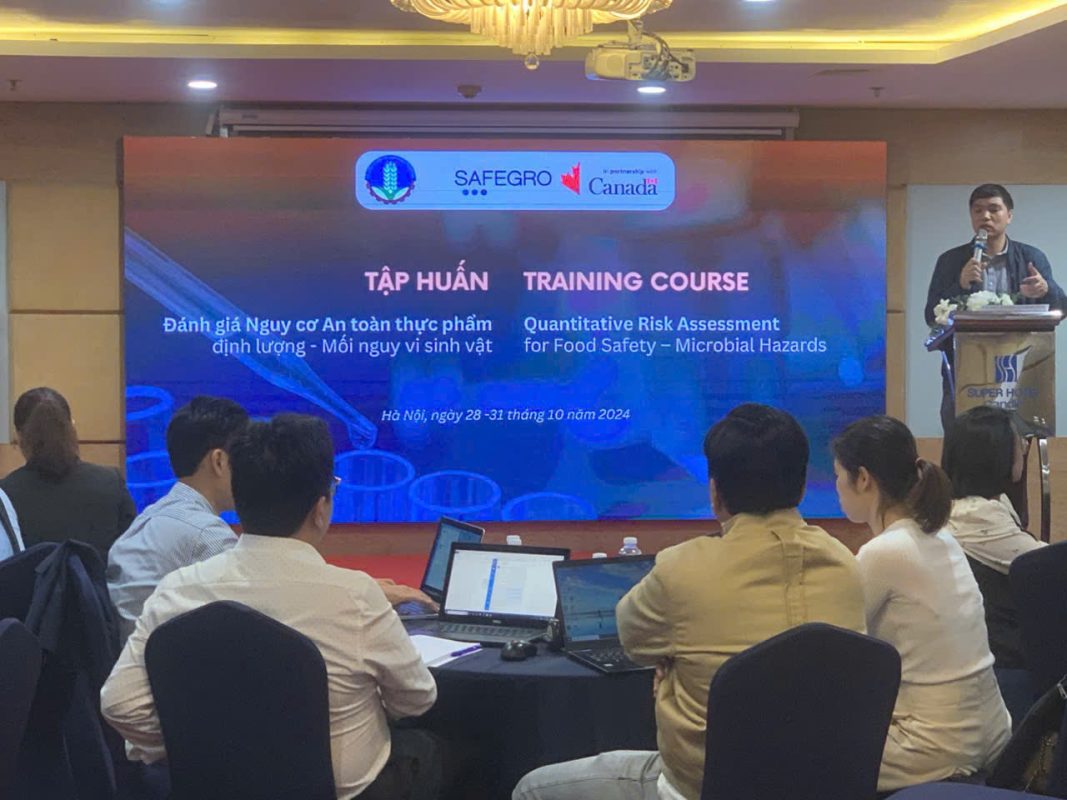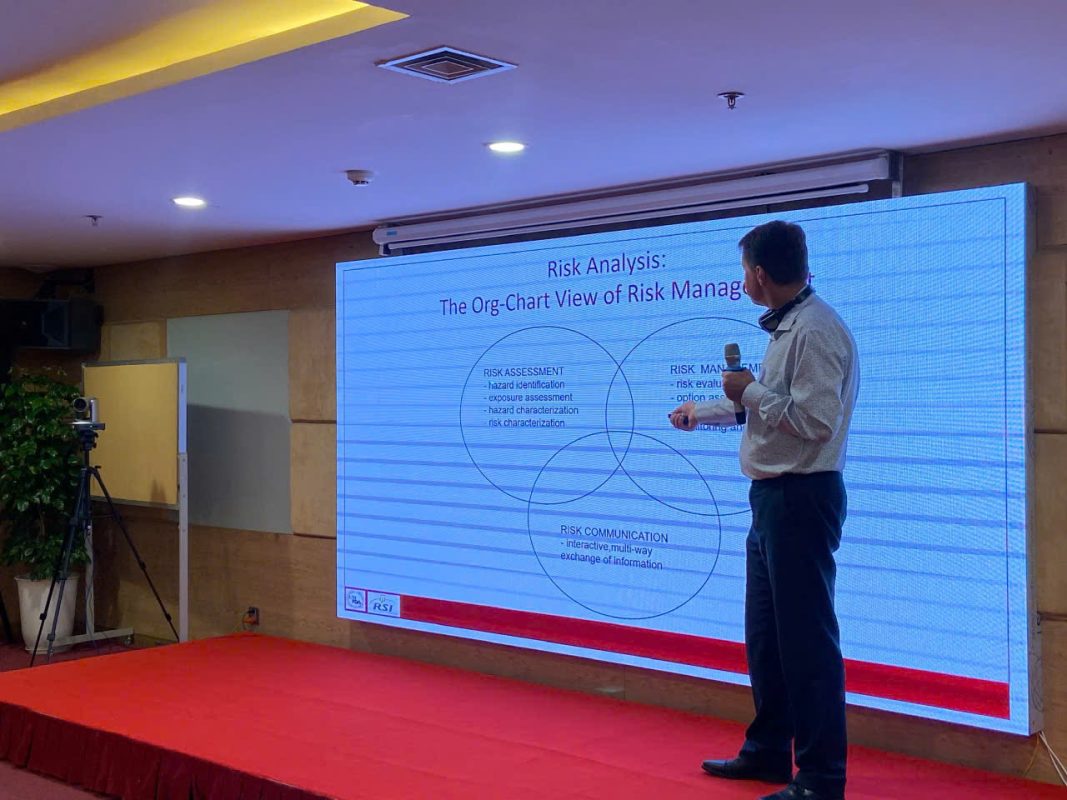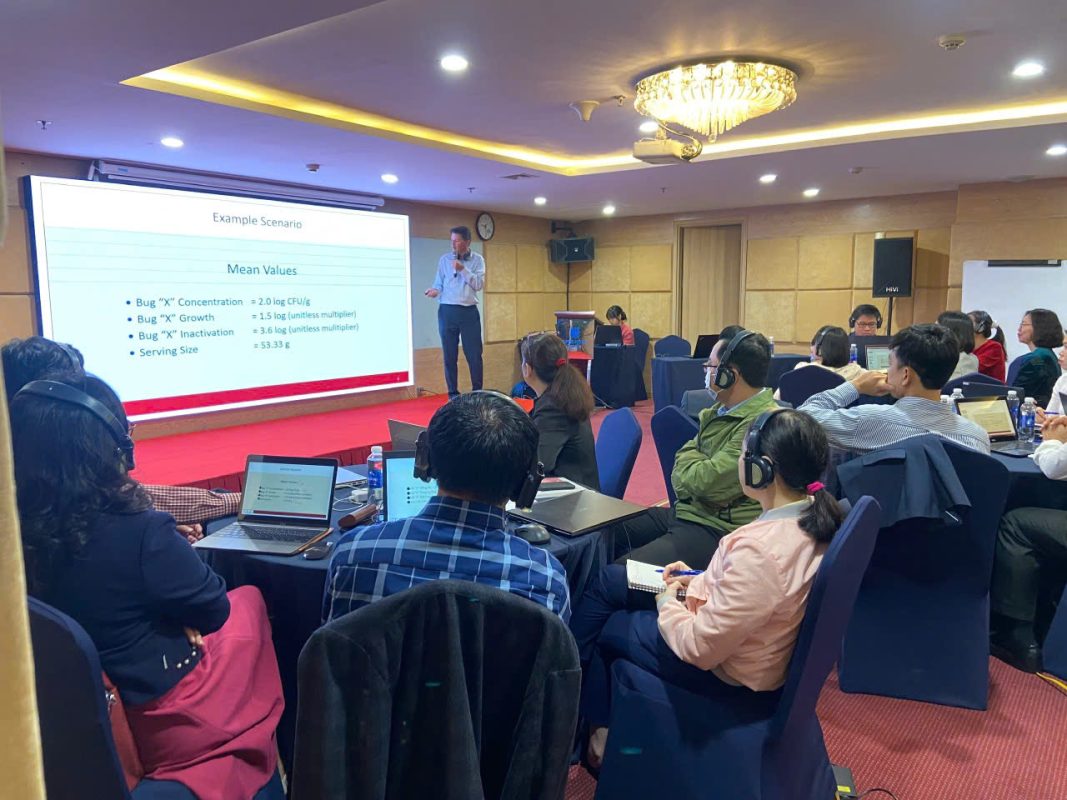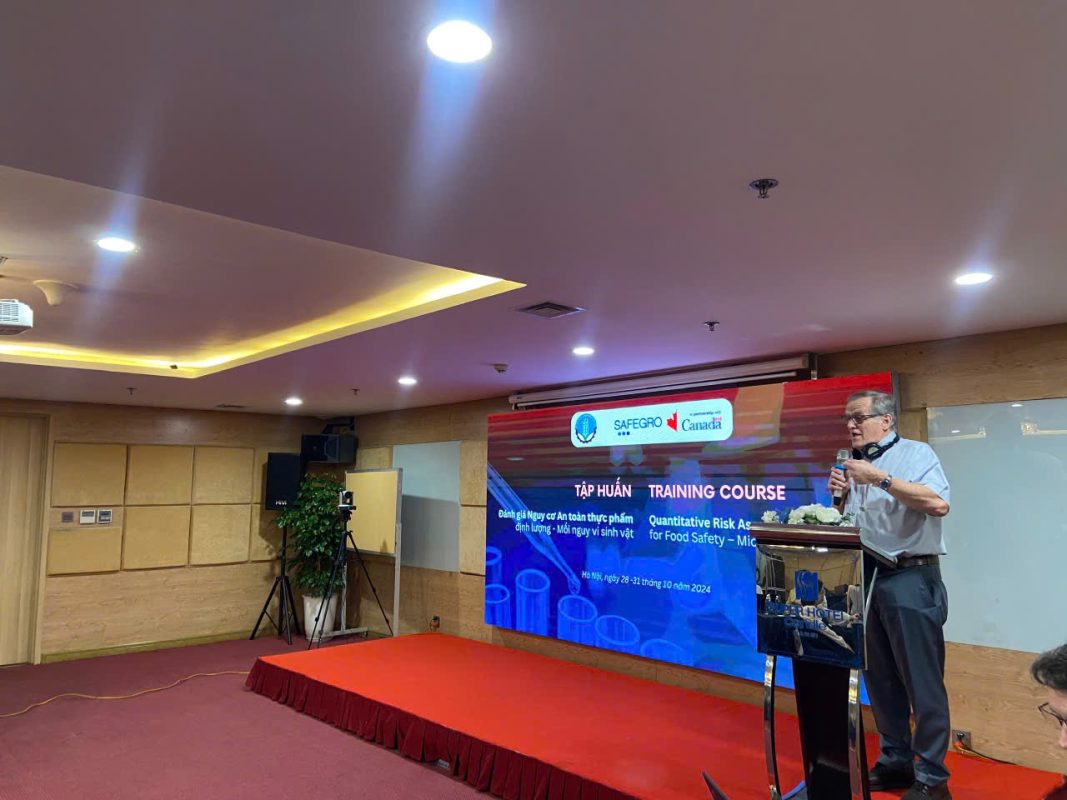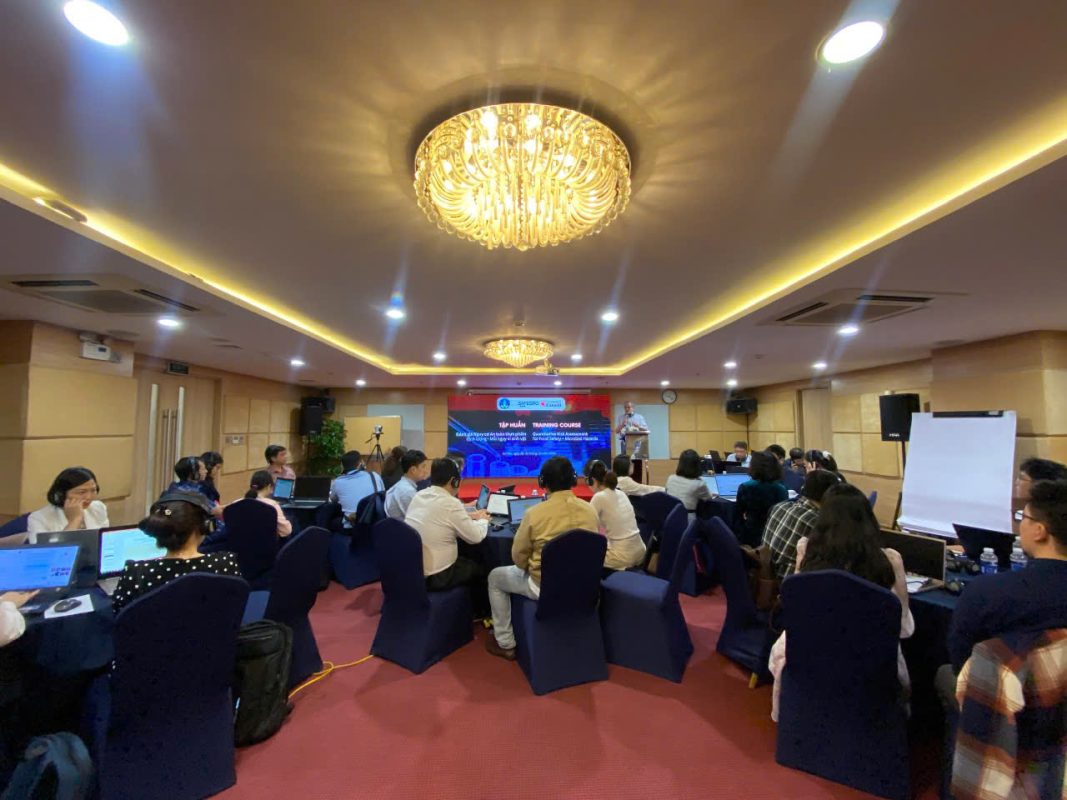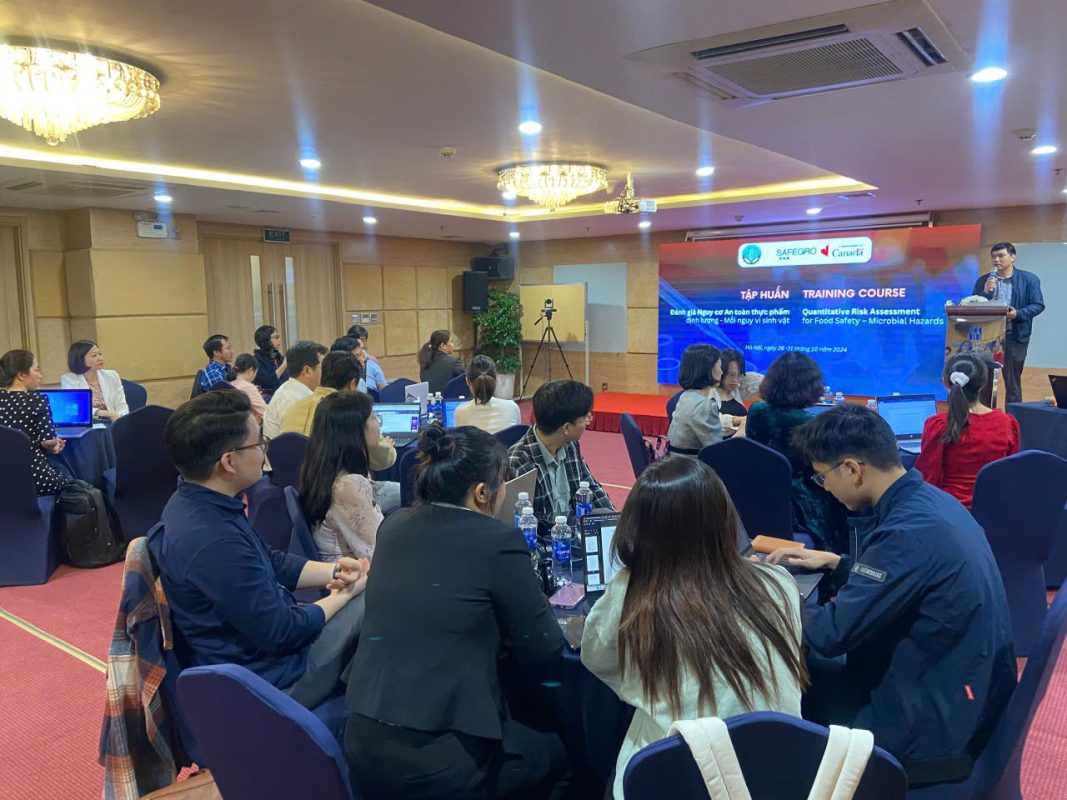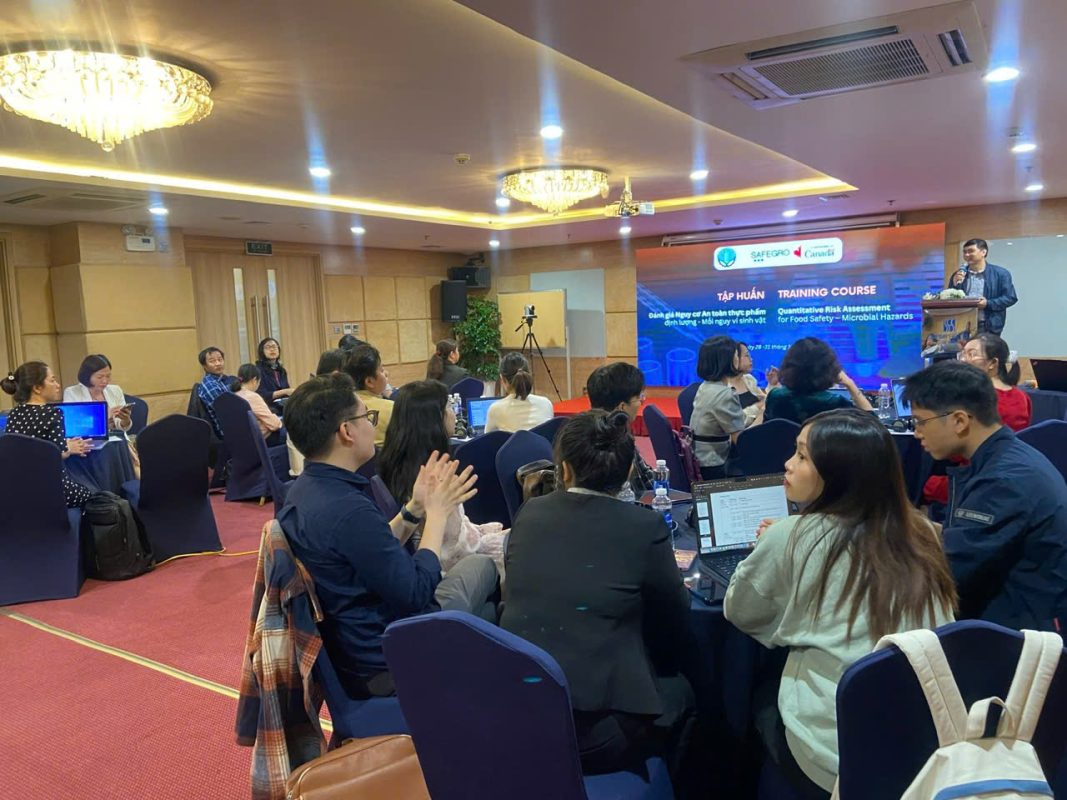On October 28, 2024, the SAFEGRO Project, in collaboration with the Department of Quality, Processing, and Market Development, launched a four-day training course on “Quantitative Risk Assessment for Food Safety – Microbial Hazards” in Hanoi. The course is led by Mr. Greg Paoli, Managing Director of Risk Sciences International, and Dr. Ashwani Tiwari from the Canadian Food Inspection Agency. It aims to strengthen the quantitative risk assessment (QRA) capabilities of Vietnamese food safety professionals in managing microbial hazards.
The training course combines theory and practical excercises, covering key topics such as microbial hazard identification, exposure assessment, dose-response assessment, and risk characterization. Participants are also equipped with foundational knowledge of probability and statistics in food safety, along with skills in using mathematical modeling techniques such as Monte Carlo simulation on the software such as Microsoft Excel, Analytica, FDA-iRISK, and other tools.
The SAFEGRO Project and the Department of Quality, Processing, and Market Development emphasize the importance of this course in improving food safety management through risk assessment and scientific evidence. The program requires participants to have a foundational knowledge of data analysis and proficiency in software such as Excel, R, Python, and SAS. Core staff from the Ministry of Agriculture and Rural Development, the Ministry of Health, the Ministry of Industry and Trade, and key food safety partners in Hanoi and Ho Chi Minh City, have been selected to attend the course.
Ms. Luu Ngoc Phuong from the Reference Testing & Agrifood quality services center (RETAQ), Ministry of Agriculture and Rural Development said: ‘Currently, many countries around the world have adopted risk assessment-based food safety management. However, in Vietnam, we have limited opportunities to learn about risk assessment, so I find this course very necessary. After completing it, we can build a network of risk assessment experts, provide essential data, and support government agencies in managing food safety more effectively.’
Phuong also believes that the knowledge and skills gained from the course will not only help address discrepancies in international food safety standards but also enhance Vietnam’s food exports by better meeting the safety requirements of global markets.
The SAFEGRO, funded by a grant from the Government of Canada, is being implemented in Vietnam from 2021 to 2025. The MARD is the Project Owner. The NAFIQMP serves as the Project Standing Agency. The Alinea International in association with the University of Guelph (UoG) is the Canadian Execution Agency (CEA). The project is being implemented in collaboration with the Ministry of Health (MOH), the Ministry of Industry & Trade (MOIT) and relevant food safety agencies in Vietnam.
The primary objective of the Project is to support the development and enforcement of science-based and risk-based food safety regulations; while also raising consumer awareness about food safety, promoting behavioral changes that lead to an increased demand for safe and affordable agricultural products in Vietnam.
